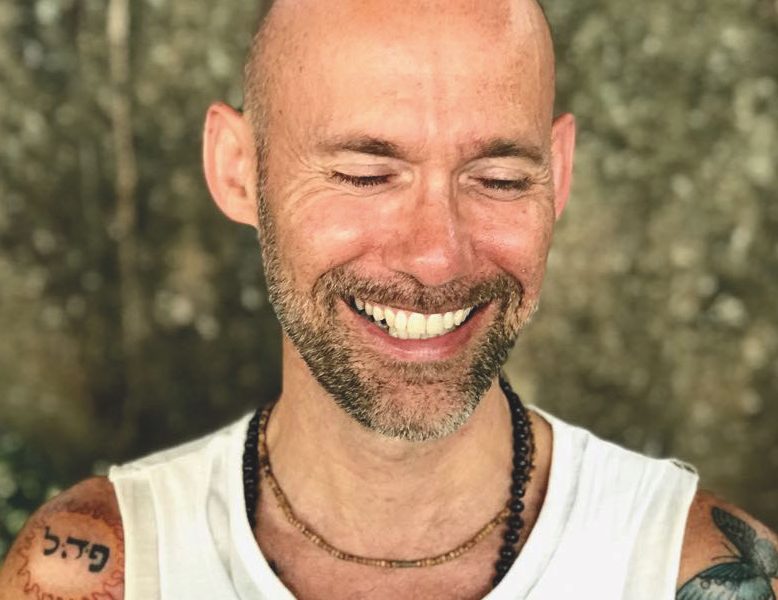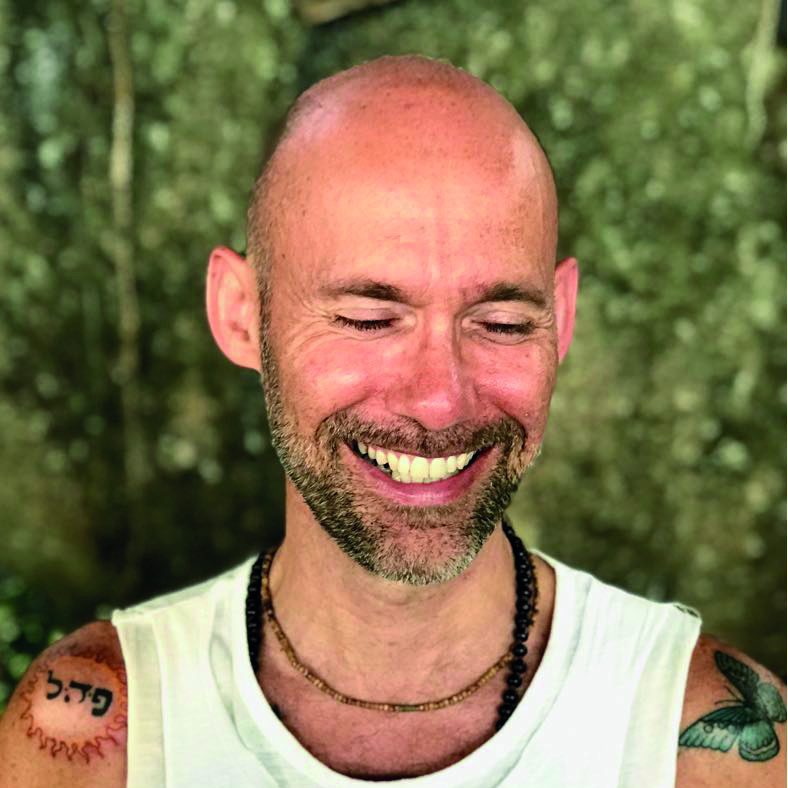by Andy Nathan
This feature was first published in Kindred Spirit issue 163 (Mar/Apr 2019). Retreat leader and keen participant Andy Nathan explains how being on retreat can make a difference to our lives

I first experienced a retreat (accidentally) when I was in my late teens. Wanting to get away from work and the family home, I borrowed my Mum’s car and drove to a forest campsite in Norfolk where I camped for 2 nights.
I had my Walkman and cassettes and planned to just be in nature and relax, go for walks, listen to music and just ‘get away’ from it all. The idea tapped into memories of family holidays where nature really seemed to speak to me and relax me, the smell and sound of the pine forests in my memory seemed to help me feel at ‘home’.
It was years before I made any sense of that experience (in fact it was many years before I remembered it.) Finding stillness, watching wildlife, being really conscious of the roaring and whispering of the leaves in the trees – being completely at ease in nature, felt both nourishing and deeply grounding. At that young age, it would have been unthinkable that many years later, retreats would offer me, and so many people so much, and that I would move in to working with people to create these same kinds of feelings and experiences.
The Oxford English Dictionary has the following definitions for the noun retreat:
-
An act of moving back or withdrawing - ‘a speedy retreat,’
-
A quiet or secluded place in which one can rest and relax. - ‘their country retreat in Ireland,’
- And, significantly, a synonym -
A period or place of seclusion for the purposes of prayer and meditation: ‘the bishop is away on his annual retreat.’
Yogis for millennia have retreated to forests, mountains and caves away from the world to tune in to their deepest state of being. Retreating played a fundamental part in the story of the Buddha, and an array of Buddhist retreats are becoming more and more popular today – mindfulness retreats in particular have waiting lists and often incorporate hours of seated meditation practice each day, with distinctly less ‘home comforts’ than participants may be used to. Retreats of solitude are also seen historically throughout mystical Christianity and Catholicism. Sufism – the mystical path of Islam – has Khalwa, which sees the participant pass through many stages over a period of days (up to 40) under the strict guidance of the participant’s teacher. And Jesus famously fasted for 40 days and nights while retreating in the desert.
Modern Retreats
Modern times are undeniably interesting, with device-driven sensory overload, confusion over truth and fact across news media, economic, financial, domestic and cultural challenges, and political instability – ‘reality’ can be disorientating. So, you might well forgive yourself for dreaming of escaping to a place where people from all walks of life can gather, and coexist with each other harmoniously, united through a common purpose. And retreats can be such places.
Under the right circumstances, retreats can literally become life-changing experiences for participants and the springboard for wonderful and unexpected life experiences.
From what might feel like a big step outside of your comfort zone, with a routine that initially may require a little adjustment, the carefully sequenced and crafted practices connected over a long weekend, or even longer, lay the foundations for magic to happen. With experienced facilitators, that arc of teachings and practices will, like the hero’s journey, lead participants through a journey of self-discovery and self- mastery, to transformation on the other side.
Over a retreat the body will adjust to the practices, moods will change, come, go and clear, perspectives shift, nourishing healthy food will be digested, and depending on the programme, there is likely to be a focus on learning to be present (sometimes digitally detoxed) without the distractions of day-to-day life and its responsibilities. Friendships will blossom and seeds will be planted.
There are of course high-end retreats – the luxury side of retreating with incredible locations and an array of accommodation and destination options to cater for those who wish to travel and practice in comfort, and there are retreats to ashrams where everything is very basic and pared down. Often, though, the magic can unexpectedly come through, for example, sharing a room with someone you don’t know. The process of retreats can open us up. Being in an environment with like-minded people can encourage openness – maybe more so than with family members, friends or even partners, at times. We can move beyond our default borders – through shared meals, walks, stargazing, lounging by the pool – and insights appear. Conversations with people we’ve never met before inspire an opening to a world of greater awareness within ourselves. Consciously or unconsciously we have been following the scent of that unnamable trail to where our truth lies.
Lasting Effects
Hollie Holden, a London-based
A Course in Miracles teacher (who I recently spent a long weekend in Findhorn with, along with a wonderful group of participants and Hollie’s retreat co-host, husband, Robert) recently spoke of the half-life of a retreat, ‘I feel like it still exists so strongly in me. I can’t believe we are still not hanging out or doing a repeat training. It was so moving - I loved it so much’.
While finishing this article in my local coffee shop, two friends of mine who often attend my Jivamukti and Restorative Yoga classes locally sat down with me for a chat, and by chance - Alex, had just come back from a ten-day Buddhist retreat in Norfolk the evening before.
Alex’s reflections resonated with me: ‘Retreats offer the opportunity to just be, without so much doing. And that can be uncomfortable. It can require patience and a willingness to be with yourself, in good company. Discomfort, patience, sitting with stuff, this is all common experience. Great benefit can be gained though, through being around more experienced retreaters and practitioners - they can offer us their similar experiences and reassurance.’
In this conversation, Alex’s wife Amritavani reminded me that retreats don’t just affect the attendee. ‘He’s brought back a light; my mood has shifted. He’s so present since he’s been home. I really enjoy seeing him like this, and when I go away on retreat, other people are benefiting when I come home - it’s definitely not selfish.’
Retreat virgins often second guess and doubt themselves (I know I did before my first retreat). It’s not uncommon for people to feel that somehow they won’t be good enough and will be the odd one out. And yet in my experience as a student, co-host, facilitator and teacher, the mix of age, walks of life, gender and abilities really can be the secret ingredients of a magical retreat. Friendships that would otherwise never have formed in daily life, born on retreat can turn into anything from business collaborations, to life-long friendships and even soul mates connections.
Sharon Gannon of Jivamukti Yoga teaches that magic is a shift in perception, the metaphysical text A Course in Miracles says that a miracle is a shift in perception. A shift in perception is entirely possible on a retreat, with the right teacher, right location and right combination of participants. When magic happens on retreat, profound and meaningful personal transformation can occur, self confidence and awareness sink deep, strong roots, and life can be changed forever.
I recently took a poll in my
Benefits of Yoga Facebook group on the greatest benefits of retreating – common themes came up time and again:
• ‘Definitely the connection you make with like-minded souls and realising you
are enough just as you are’;
• ‘Being responsible for only me’;
• ‘Away from everyday stresses of life so able to focus on yoga wholeheartedly’;
• ‘A chance to deepen my meditation and yoga practices’;
• ‘The food (not having to cook, clear up and do the dishes)’;
• ‘The shift in perspective and perception of myself and my life.’
So, what are you waiting for? With so much choice of type and length of retreat, of location, and investment, there’s never been a better time to take that step and follow your heart. After all, if the above is true, how much more meaningful and enriched could your life become? Beyond your wildest imaginings.
See you on retreat soon?

About the author
Andy Nathan is a UK-based yoga and meditation teacher specialising in Jivamukti and Restorative Yoga, Kirtan, Yoga Nidra, Journaling and Mindfulness Meditation. Andy also teaches nationally and internationally.
svadhyaya-yoga.com


